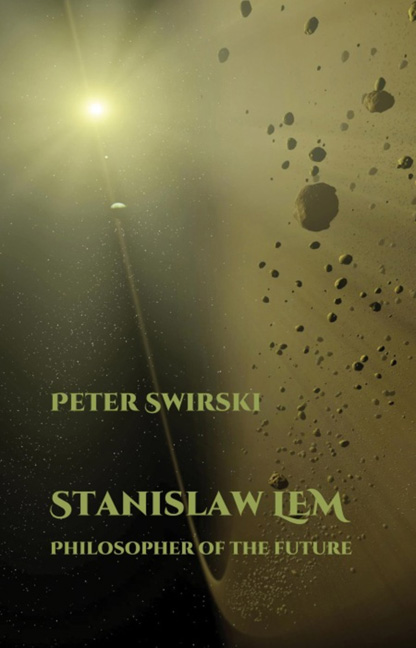8 - Happy End of the World!
from PART III - CODA
Summary
The Blink of an Eye
Is conclusive knowledge of the processes that led to the genesis of life on Earth possible? Will science bring us immortality? Are we alone in the Universe? What are the odds of meeting an extraterrestrial civilization? Is Nature an evolutionary monopolist? What do cloning and genetic engineering portend for our future? Will human beings produce artificial intelligence? What will be the consequences of the lightning–fast unfolding of communication technologies?
Found on the back cover of a 2000 collection, Okamgnienie [The Blink of an Eye], questions of this nature would normally bespeak a book by a physicist, biologist, or perhaps computer scientist. Yet Stanislaw Lem is none of the above. The author of this slender volume has achieved world renown as a writer of fiction, so much so that some of his science–in–fiction novels—including Solaris, The Star Diaries, Fables for Robots, The Cyberiad, Tales of Pirx the Pilot, plus the realistic wartime drama Hospital of the Transfiguration —are now featured readings in Polish schools.
Although he had forsaken writing fiction after releasing Fiasco (1986) and Peace on Earth (1987), until his death two decades later Lem remained an eagerly consulted literary and cultural critic, philosopher, futurologist, and not least a science–savvy polemicist.
Appropriately enough, from the threshold of the new com–tech and bio–tech millennium comes The Blink of an Eye, a collection of diagnostic and prognostic essays on the shape of things to come in Y2K and beyond.
Structurally, the book consists of an Introduction and 21 brief chapters of for the most part five to ten pages, though sometimes as few as three. In Hollywood someone might refer to these condensed overviews as treatments, were it not for the fact that Lem's precision of thought, scientific erudition, and palpable interest in sometimes diabolically complex issues stands diametrically opposed to whatever Hollywood stands for. Compact in size and set in an oversized font, The Blink of an Eye amounts to a distillate and a concentrate of thought, an impression enhanced by dense paragraphs that can run more than a page long.
Most of the chapters are occasioned by—and typically open with—polemical references to publications or scientific reports that provoke the ensuing reflections.
- Type
- Chapter
- Information
- Stanislaw Lem: Philosopher of the Future , pp. 181 - 186Publisher: Liverpool University PressPrint publication year: 2015



